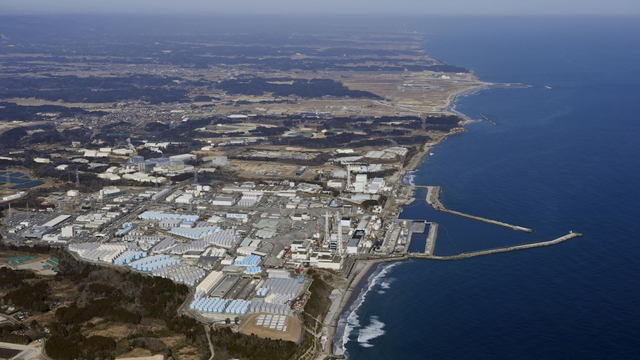A high-level South Korean government official said Tuesday that Seoul "firmly opposes" Japan's decision to release into the sea treated radioactive water that has accumulated at the crippled Fukushima Daiichi nuclear power plant.
Koo Yun Cheol, minister for government policy coordination, made the remark at the outset of an emergency meeting of related ministries held to discuss responses to the Japanese decision. He later told reporters that Seoul finds the decision highly regrettable and said it was unacceptable.
The strongly worded reaction from South Korea followed the Japanese government's decision earlier in the day to discharge the water into the Pacific, starting in around two years' time, despite worries among local fishermen and neighboring countries.
Meanwhile, the U.S. government showed understanding of the Japanese plan, saying shortly after the Japanese announcement that Tokyo's decision-making process was "transparent."
"We thank Japan for its transparent efforts in its decision to dispose of the treated water from the Fukushima Daiichi site," Secretary of State Antony Blinken tweeted, adding that the United States looks forward to Japan's continued coordination with the International Atomic Energy Agency.
State Department spokesman Ned Price also emphasized in a press release that Japan has worked closely with the U.N. nuclear watchdog to manage the aftermath of the accident triggered by a massive quake and tsunami that hit northeastern Japan 10 years ago, including over cleanup efforts.
Noting that the United States is aware that the Japanese government examined several options related to the management of the processed water, Price said Japan has been "transparent about its decision" and "appears to have adopted an approach in accordance with globally accepted nuclear safety standards."
The Fukushima Daiichi plant suffered core meltdowns in the wake of a devastating earthquake and tsunami in March 2011. Massive amounts of radioactive water have been generated in the process of cooling melted reactor fuel.
The water is treated at a processing facility on the premises to remove most contaminants but the process cannot remove tritium, a radioactive byproduct of nuclear reactors. The treated water, stored in tanks, has been building up, with storage capacity expected to run out as early as fall next year.
